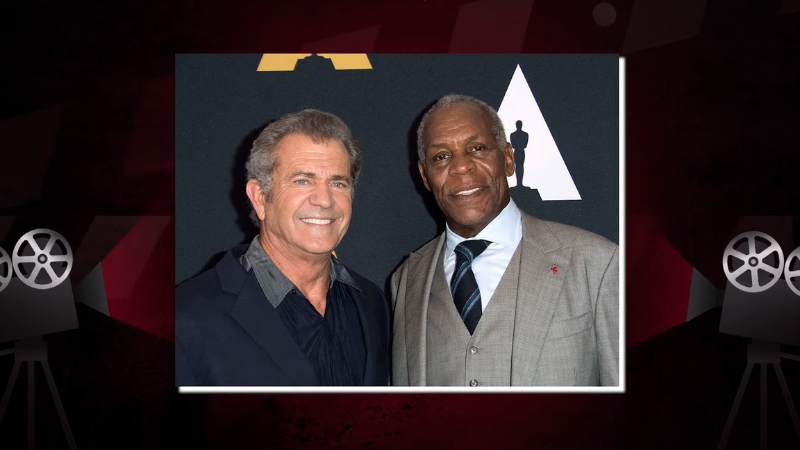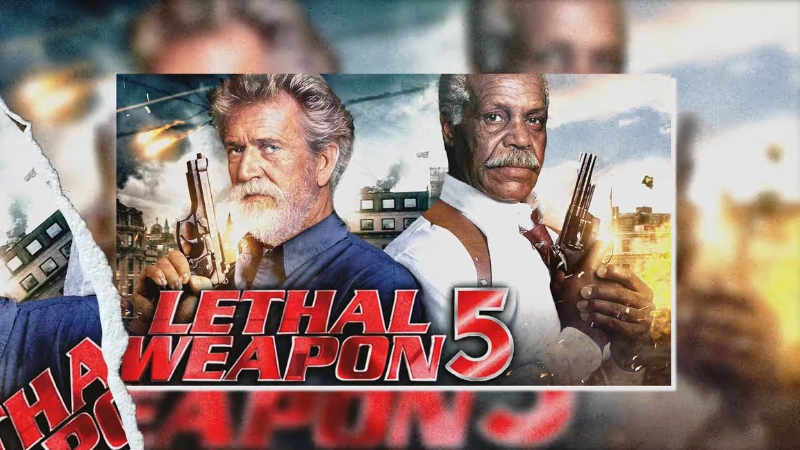When Lethal Weapon 5 was confirmed, fans of the franchise felt a mix of nostalgia and curiosity. The original films were action-packed, funny, and full of chemistry between Mel Gibson’s Martin Riggs and Danny Glover’s Roger Murtaugh.
But beneath the buddy-cop dynamic was a darker thread—Riggs’s struggle with grief, PTSD, and the lingering effects of his military past. As discussions swirl around the upcoming sequel, one concrete question emerges: Will Lethal Weapon 5 finally give a more authentic portrayal of the psychological toll military service takes on veterans?
The answer: It’s likely—but not guaranteed.
Based on current information, the creative team behind Lethal Weapon 5 has hinted at addressing themes of aging, legacy, and perhaps unresolved issues from past conflicts.
However, whether the film will explicitly delve into the psychological scars of military service is still uncertain. Given Martin Riggs’s background—a Vietnam War veteran haunted by his experiences—the potential is undeniable.
The Roots of Riggs’s Trauma

In the original Lethal Weapon (1987), Martin Riggs was introduced as a skilled but volatile LAPD detective. Beneath his wild antics and daredevil tactics lay deep-seated grief over his wife’s death and the trauma of his military past.
Riggs’s character backstory—Vietnam War veteran turned police officer—was not just a throwaway detail. It shaped his mental health, his dangerous behavior, and his isolation from others.
Riggs’s struggle mirrors the real-life challenges of many Vietnam veterans who faced societal misunderstanding, inadequate support, and internal battles with post-traumatic stress disorder (PTSD).
According to the U.S. Department of Veterans Affairs, an estimated 30% of Vietnam veterans experienced PTSD during their lifetime, compared to around 11-12% of veterans from more recent conflicts.
Here’s a breakdown of key elements of Riggs’s backstory and its reflection of reality:
Aspect
On-Screen Representation
Real-World Parallel
Military Service
Riggs served as a U.S. Army Special Forces operative during Vietnam.
Many veterans were exposed to traumatic events and high-intensity combat in Vietnam.
PTSD Symptoms
Riggs shows erratic behavior, risk-taking, depression, and suicidal ideation.
PTSD can manifest as emotional volatility, flashbacks, hypervigilance, and depression.
Isolation
Riggs lives alone in a trailer and struggles to connect with others.
Many veterans experienced difficulty reintegrating into civilian life and relationships.
Substance Use
Implied heavy drinking and reckless behavior.
Veterans with PTSD often turn to alcohol or substances as coping mechanisms.
The Evolution of PTSD Representation in Film
In the late 1980s, PTSD and mental health were often relegated to side plots or reduced to character quirks. Riggs’s pain was evident, but Lethal Weapon chose to balance it with humor, action, and camaraderie.
View this post on Instagram
However, cinema has evolved since then. Modern films such as American Sniper (2014), The Hurt Locker (2008), and Thank You for Your Service (2017) have brought the raw, human cost of war to the forefront, forcing audiences to confront the deep psychological impact of combat.
This shift suggests that Lethal Weapon 5, arriving decades later, might approach Riggs’s backstory with more nuance. If the filmmakers tap into the contemporary understanding of trauma, we could see a portrayal that respects the complexity of military service and its aftershocks.
A Shift in How Audiences Consume Stories
Today’s viewers aren’t just watching films in theaters or on DVDs—they’re turning to streaming platforms, on-demand services, and digital subscriptions. This evolution in content consumption has transformed not only how stories are told but also how they’re accessed.
Services like IPTV service—Internet Protocol Television—have made it easier than ever for fans to revisit older films like Lethal Weapon and follow up with new sequels.
For fans eager to rewatch the original films in preparation for Lethal Weapon 5, or for new viewers discovering the franchise for the first time, IPTV services provide seamless access to the full catalog.
Whether it’s live-streamed, on-demand, or part of a curated package, this modern approach to viewing allows audiences to engage with Riggs’s journey—and the franchise as a whole—on their terms.
This also opens the door for deeper reflection. Watching Lethal Weapon through an IPTV service makes it easy for fans to pick up on the subtle threads of Riggs’s trauma and how those early cues might evolve into the next chapter.
The Reality of Military Service and PTSD
To understand what Lethal Weapon 5 might explore, we must ground ourselves in the real experiences of veterans. Here are key facts about PTSD and military service today:
- Prevalence: According to the National Center for PTSD, approximately 11-20% of veterans of Operations Iraqi Freedom (OIF) and Enduring Freedom (OEF), 12% of Gulf War veterans, and 30% of Vietnam veterans have experienced PTSD at some point in their lives.
- Symptoms: PTSD is not just flashbacks. It includes insomnia, irritability, hypervigilance, avoidance of triggers, emotional numbing, and intrusive memories.
- Treatment: Modern approaches emphasize therapy, peer support, and medication. However, stigma and systemic barriers persist, preventing many veterans from receiving help.
- Cultural Shift: Society has become more open to discussing mental health, but military culture still carries expectations of toughness and stoicism, making vulnerability challenging.
Could Lethal Weapon 5 Break New Ground?
@requination #melgibson #thepassionofthechrist2 #lethalweaponfive #rqn #requination ♬ original sound – Requination
The potential is there. Here’s how the upcoming sequel could honor Riggs’s military past and its psychological consequences:
1. Directly Address PTSD
Unlike the earlier films, Lethal Weapon 5 could show Riggs openly confronting his PTSD through therapy, support groups, or candid conversations with Murtaugh. This would align with how modern films treat mental health with respect and honesty.
2. Depict Aging Veterans
Both Riggs and Murtaugh are now older men. The film could highlight how trauma doesn’t simply fade with age. Older veterans often grapple with compounded stressors—health issues, survivor’s guilt, and the feeling of being forgotten.
3. Show Systemic Challenges
Instead of focusing solely on personal struggle, the film could also hint at the systemic gaps, such as underfunded VA services, long wait times for mental health care, and societal neglect. This would ground the story in realism.
4. Humanize Without Glorifying Violence
One risk with action films is that they sometimes glorify violence while sidelining its human cost. Lethal Weapon 5 could take a more thoughtful approach, balancing action with introspection. Riggs’s resilience and skill can be celebrated while acknowledging his scars.
5. Consult Veterans and Mental Health Experts
For authenticity, the production team could involve military consultants and mental health professionals to ensure accuracy. Films like Lone Survivor and American Sniper benefited from such collaborations.
Behind the Scenes: What We Know So Far

Director Mel Gibson—who also plays Riggs—has suggested that Lethal Weapon 5 will tackle themes of legacy, mortality, and brotherhood. In interviews, he’s acknowledged the importance of honoring both the characters and their journeys. However, official statements have been light on specific plot details, leaving room for speculation.
Gibson’s connection to the character and his understanding of Riggs’s pain might drive the film to delve deeper into the veteran experience. Still, whether the studio will back a more introspective angle remains to be seen, especially given the expectations for a high-energy action sequel.
If They Choose Not to Explore It…
If Lethal Weapon 5 sidesteps Riggs’s military trauma, it would be a missed opportunity. Not only would it undercut the character’s depth, but it would also fail to reflect the reality faced by millions of veterans.
Fans might still enjoy the nostalgia and action, but the story would risk feeling hollow or disconnected from today’s conversations about mental health.
Conclusion
So, will Lethal Weapon 5 explore the psychological toll of military service? There’s a strong possibility—but no firm guarantees. The groundwork is there: Riggs’s past as a veteran, his history of trauma, and the evolving understanding of PTSD in media.
With a sensitive and realistic approach, the film could honor not just its characters but also the millions of veterans grappling with invisible wounds.
If Lethal Weapon 5 chooses depth over superficial action, it could resonate on a level far beyond gunfights and one-liners. It could remind us that behind every uniform, badge, or bravado, human beings are carrying the weight of their experiences, some of which never truly leave them.







